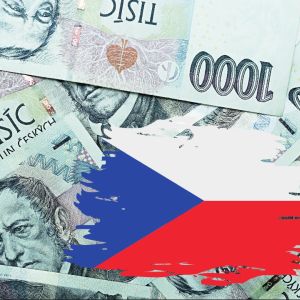The Czech government lowered its forecast for economic growth because it anticipated that companies would reduce investment due to the risks associated with U.S. tariffs . The Finance Ministry now projects a 2% GDP increase in 2025, down from the earlier 2.3% estimate. Officials noted that weak exports are slowing overall growth, while household spending remains the main driver of expansion. Finance ministry warns Trump’s tariffs could further slow Czech economy to 1.6% The updated forecast accounts for the impact of previous U.S. tariffs on EU automobile, steel, and aluminum exports but does not factor in President Donald Trump’s more recently announced and subsequently suspended tariffs. A chief economist of the Finance Ministry, David Prusvic, predicted that the uncertain status of international trade will negatively impact corporate spending plans in one of Europe’s most export-dependent economies. Furthermore, in line with reports from sources, Prusvic clarified that their companies’ investment strategies were based on domestic and international economic trends, especially those in the euro area. Meanwhile, the Czech Republic’s primary industries are auto parts and automobile manufacturing, with exports to the EU accounting for around 80% of the nation’s GDP. However, investors are worried about the fate of Trump’s recent tariffs. The Finance Ministry’s recent findings make the situation even worse. According to the ministry, Czech economic growth could drop further to around 1.6% this year if those tariffs are implemented. While the full impact remains uncertain, the ministry suggested that Germany’s proposed fiscal stimulus—given its role as the Czech Republic’s largest export destination—could offer some relief. The Central European government is getting ready to strike back against the new U.S. tariffs As Central Europe started calculating the probable costs of a trade war, leaders in the Czech Republic and Poland indicated that they were prepared to retaliate against new U.S. tariffs on April 3, while Hungary, a country in Europe, accused Brussels, the capital city of Belgium, of causing tensions with Washington. Furthermore, Ursula von der Leyen, president of the European Commission, called the U.S. President Donald Trump’s universal tariffs a serious setback to the global economy and stated that the 27-member bloc was ready to retaliate with countermeasures if negotiations with Washington broke down. This came after Trump’s remarks caused Central Europe’s stock markets and currencies to drop sharply. The Czech crown was hardest hit as it dropped past the crucial 25 per euro mark in early trading before reducing its losses gradually by making adjustments to minimize the negative impact of the situation. In response, on the social media X platform, Czech Prime Minister Petr Fiala posted that having no tariffs was the best option. However, the two parties needed to be willing to agree. He highlighted that Europe was ready to engage in dialogue with the United States, but at the same time, it was prepared to respond clearly. Even though Poland was less vulnerable to risk because of its sizable domestic market and decreased reliance on auto exports, Donald Tusk, the prime minister of Poland, declared that the U.S. decision would slow economic growth and that appropriate decisions on reciprocal tariffs were required. Tusk elaborated on his X account that a preliminary assessment estimated that new U.S. tariffs might decrease Polish GDP by 0.4%. Even under conservative projections, losses are expected to surpass 10 billion zlotys (approximately $2.63 billion). Trump’s tariffs have disproportionately impacted the automotive sector, undermining growth in countries that support the industry Around 20% to 30% of Central Europe’s exports—largely automobiles—go to Germany, highlighting the region’s deep ties to car manufacturing. According to S&P Global, the new U.S. trade measures threaten to further dampen growth prospects across Central Europe. Last month, the Czech Automotive Industry Association said that its export-oriented auto industry might still suffer despite the Czech Republic having relatively little direct exposure to United States sales. The Czech Automotive Industry said in a statement that the tariff increase announced would “massively” affect many Czech parts and services suppliers, especially those that supply customers in Germany. This would result in a major loss of orders and fewer export opportunities. Erste Group economists warned that Slovakia could experience an even sharper impact, with the cumulative effect of the tariffs potentially shaving 1.5 percentage points off its GDP over the next three years. Cryptopolitan Academy: Want to grow your money in 2025? Learn how to do it with DeFi in our upcoming webclass. Save Your Spot
















